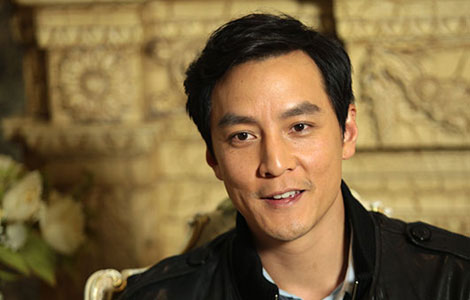Economy to see 'good ending' in 4th quarter
Updated: 2013-10-22 09:19
By Chen Jia (China Daily)
|
||||||||
Premier says policies must help balance growth and reforms
PremierLi Keqiangassured on Monday that the nation's economy will have "a good ending" in 2013, which will enable it to have "a promising beginning" for 2014.
Li made the comment while briefing representatives to the 16th national congress of the All-China Federation of Trade Unions.
He also vowed to carry out reforms and ensure employment as economic growth stabilizes.
Macroeconomic policies should continue to balance growth and structural reforms, he said.
"We are confident of achieving the main targets of economic and social development this year," Li said.
Li highlighted the continuation of a "proactive employment policy" to create more opportunities in the labor market, measures to improve the income of rural migrant workers, and the promotion of social security for employers.
He warned that risks and challenges still exist, which may weaken the economic recovery, although the economic indicators in the third quarter showed the best picture of the year.
The National Bureau of Statistics reported a GDP growth rate of 7.8 percent from July to September, rebounding from 7.5 percent in the second quarter. It was 7.7 percent in the first three months.
The consumer price index, the main gauge of inflation, stood at 2.5 percent for the first three quarters.
So far, GDP and inflation levels are within the government's "reasonable range", with positive changes in economic structure and increasing incomes, the premier said.
Based on economic momentum in the third quarter, "China's labor market remains robust", said Stephen Green, chief economist in China at Standard Chartered Bank.
According to the NBS, urban household disposable income rose by 7.2 percent year-on-year in real terms in the third quarter, after growth slowed to 6.4 percent in the second, which supported a mild pickup in urban household consumption.
Real growth in rural household cash income also accelerated to 10.2 percent year-on-year in the third quarter, compared with 8.9 percent in the second. Migrant workers' real wage growth stayed robust at 9.9 percent between July and September.
Economists predict that the leadership will prefer to maintain current monetary and fiscal policies, without expanding the fiscal deficit or increasing the money supply to stimulate investment, and to focus more on shifting the growth model to one that is driven by consumption.
Peng Wensheng, chief economist at China International Capital Corp, an investment banking group, said that the economic rebound is likely to remain until the second quarter of 2014.
"However, structural contradictions will limit the rebound, as the potential growth rate of the world's second-largest economy is slowing," he said.
Policies in the near future will focus more on structural rebalancing, rather than further stimulating investment, considering the potential real estate bubbles and financial risks, according to Peng.
Chang Jian, chief economist at Barclays Capital, said the whole year's GDP growth may reach 7.6 percent.
In 2014, as the government continues to stress reforms, growth is likely to slow to 7.1 percent, Chang said.
"Whether the government can announce crucial financial reform measures at the meeting of the 18th Central Committee of the Communist Party of China in November and downgrade the 2014 growth target to 7 percent from this year's 7.5 percent, will be a test for the leadership's tolerance," she said.
This year the central government has reduced administrative examinations and approvals, accelerated railway construction, strengthened supports for small businesses and liberalized interest rates.
chenjia1@chinadaily.com.cn
 Teacher killed, two wounded in Nevada middle school shooting
Teacher killed, two wounded in Nevada middle school shooting
 Smog wraps northeast, schools forced to close
Smog wraps northeast, schools forced to close
 Architect looks to the big picture
Architect looks to the big picture
 Teachers, students divided over Gaokao reform plan
Teachers, students divided over Gaokao reform plan
 Dogfight looms over jets
Dogfight looms over jets
 Peak season for fall foliage in Beijing
Peak season for fall foliage in Beijing
 Train carrying carrying oil, gas derails in Canada
Train carrying carrying oil, gas derails in Canada
 30,000 turn out in Beijing Marathon
30,000 turn out in Beijing Marathon
Most Viewed
Editor's Picks

|

|

|

|

|

|
Today's Top News
Teacher killed in Nevada middle school shooting
Obama vows to get website fixed
BOC-NY, IFC sign agreement
US OKs Alibaba structure
Economy to see 'good ending' in 4th quarter
UK official looks to China
Economy to see 'good ending' in Q4
Beijing needs to be 'more active' in global security
US Weekly

|

|







